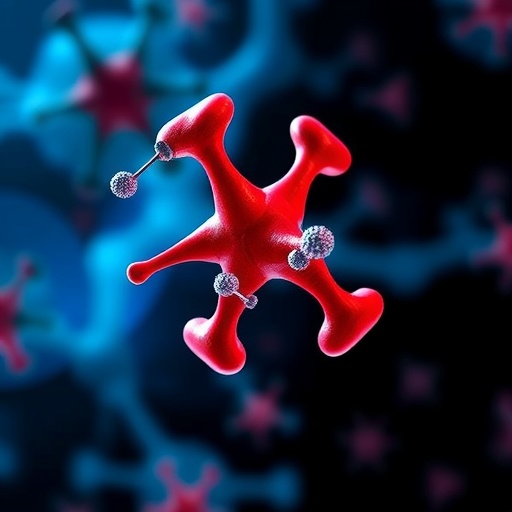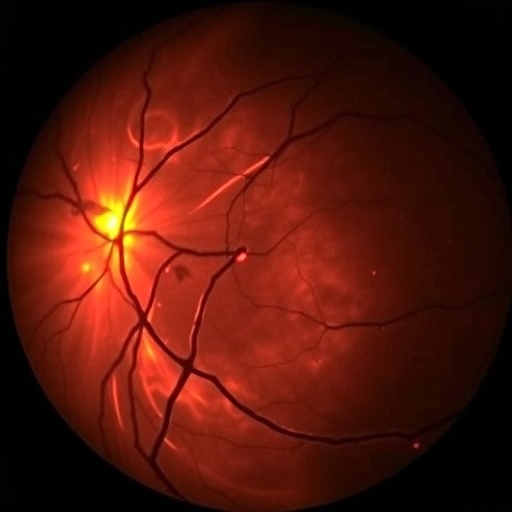
Recent advancements in cancer therapy have drawn considerable attention to the essential role of the p38 mitogen-activated protein kinase (MAPK) signaling pathway. This pathway, integral to various cellular processes including proliferation, differentiation, and apoptosis, has emerged as a promising target for developing novel cancer therapeutics. Researchers have been focusing on understanding the intricate molecular mechanisms that govern p38 MAPK’s interactions, which could potentially unlock new treatment modalities for various malignancies.
The significance of p38 MAPK in cancer biology is underscored by its involvement in inflammation and stress responses. As a multifunctional kinase, p38 MAPK mediates responses to inflammatory cytokines and is activated by environmental stressors. This dual role has especially piqued the interest of researchers in oncology, since managing the inflammatory response can be crucial in tumor progression and metastasis. Many studies have established a link between the overactivation of p38 MAPK and the aggressive behavior of several cancers, including breast and colon cancers.
Exploring the pharmacological manipulation of p38 MAPK could lead to the development of innovative strategies to combat cancer. Inhibiting this pathway may help in the sensitization of tumor cells to conventional therapies such as chemotherapeutic agents and radiation, thereby enhancing their efficacy. Concurrently, selective inhibition offers the possibility of reducing adverse side effects associated with less specific therapeutic approaches. The quest for developing selective p38 MAPK inhibitors has gained momentum, and ongoing research aims to understand their therapeutic window and potential limitations.
From a medicinal chemistry perspective, significant strides have been made in designing small molecule inhibitors that specifically target p38 MAPK. Structure-based drug design and high-throughput screening methods have yielded promising candidates that exhibit potent inhibitory effects against kinases. Recent studies have highlighted several compounds that have entered preclinical or clinical trials, demonstrating the potential of p38 MAPK as a therapeutic target. These advancements reflect the convergence of molecular pharmacology with cutting-edge drug discovery methodologies.
Unfortunately, the journey toward effective p38 MAPK inhibitors has not been without challenges. The complexity of p38 MAPK’s role in various cellular contexts leads to potential off-target effects and unanticipated biological consequences. Integrative studies employing advanced molecular techniques, including CRISPR-Cas9 gene editing and RNA sequencing, have become vital in delineating the multifaceted roles of this kinase. Such approaches allow researchers to better understand the mechanistic underpinnings of p38 MAPK in cancer pathology and may aid in the identification of biomarkers for response prediction.
Moreover, combination therapies that incorporate p38 MAPK inhibitors with other treatment regimens are increasingly being explored. Given the highly interconnected nature of signaling pathways in cancer, such combinations can yield synergistic effects that enhance therapeutic efficacy while mitigating resistance mechanisms. As resistance to targeted therapies remains a significant barrier in oncology, the exploration of p38 MAPK within these frameworks holds promise for improved patient outcomes.
Current efforts are focused on elucidating the precise molecular interactions and downstream effectors activated by p38 MAPK that contribute to tumor cell survival and resilience. Identifying the signaling networks influenced by p38 MAPK may provide deeper insight into titan-like cancer cell behaviors and help in mitigating the therapeutic challenges associated with aggressive tumors. Streamlining research to explore the role of p38 MAPK across different cancer types will illuminate the diversity of its function, leading to potential breakthroughs in personalized cancer therapies.
There is also an increasing emphasis on the impact of the tumor microenvironment on p38 MAPK signaling. The interaction between cancer cells and their surrounding stroma presents a dynamic landscape that can significantly alter the therapeutic landscape. Exploring how various components of the microenvironment influence p38 MAPK activity may provide crucial insights into the possible development of resistance mechanisms in therapeutic contexts. This knowledge could guide clinical strategies to enhance the effectiveness of p38 MAPK targeting.
Another exciting area of research delves into the role of post-translational modifications on p38 MAPK activity. Understanding how phosphorylation and other modifications alter its function in various cancer settings can provide valuable information for the rational design of inhibitors. Efforts are underway to dissect these regulatory mechanisms, revealing potential ways to modulate the activity of p38 MAPK for therapeutic benefit.
Future directions in targeting p38 MAPK will also likely include the incorporation of advanced delivery systems to improve the bioavailability and tissue specificity of therapeutic agents. Nanoparticle-mediated delivery has shown promise in selectively targeting tumor tissues while sparing healthy tissues, potentially maximizing therapeutic impact and minimizing systemic toxicity. Enhancing the pharmacokinetic properties of p38 MAPK inhibitors through innovative delivery strategies could revolutionize their clinical application in oncology.
As the field continues to evolve, collaborations between molecular pharmacologists, medicinal chemists, and oncologists will be critical in translating basic research findings into effective clinical applications. The integration of real-world data and clinical feedback into ongoing research could help shape the therapeutic approaches targeting p38 MAPK. This collective effort may lead to breakthroughs that redefine cancer treatment paradigms and provide hope to countless patients worldwide.
The horizon is now brimming with potential, as researchers forge ahead in the investigation of p38 MAPK. By developing novel therapeutic strategies and uncovering the intricacies of signaling pathways, the promise of improved cancer therapies becomes increasingly tangible. The ultimate goal is to leverage the knowledge gained to create targeted treatments that result in enhanced efficacy, reduced side effects, and improved quality of life for patients battling cancer.
In summary, targeting the p38 MAPK pathway represents a cutting-edge approach in cancer therapy, blending fundamental molecular understanding with innovative pharmacological strategies. As research progresses, the hope is to capitalize on these insights to develop effective treatments that harness the full potential of this pivotal signaling pathway in our fight against cancer.
Subject of Research: Advances in targeting p38 MAPK for cancer therapy.
Article Title: Advances in targeting p38 MAPK for cancer therapy: insights from molecular pharmacology and medicinal chemistry.
Article References:
Bhole, R.P., kadam, N., Karwa, P.N. et al. Advances in targeting p38 MAPK for cancer therapy: insights from molecular pharmacology and medicinal chemistry.
Mol Divers (2025). https://doi.org/10.1007/s11030-025-11291-7
Image Credits: AI Generated
DOI: 10.1007/s11030-025-11291-7
Keywords: p38 MAPK, cancer therapy, molecular pharmacology, medicinal chemistry, small molecule inhibitors, combination therapy, tumor microenvironment, post-translational modifications, targeted therapy.
Tags: advancements in cancer treatment strategiesinflammation and cancer biologymolecular mechanisms of p38 MAPK interactionsnovel cancer therapeutics targeting p38 MAPKp38 MAPK and cancer metastasisp38 MAPK in breast and colon cancersp38 MAPK signaling pathway in cancer therapypharmacological manipulation of p38 MAPKrole of p38 MAPK in tumor progressionselective inhibition of p38 MAPKsensitization of tumor cells to chemotherapytargeting inflammatory responses in malignancies




